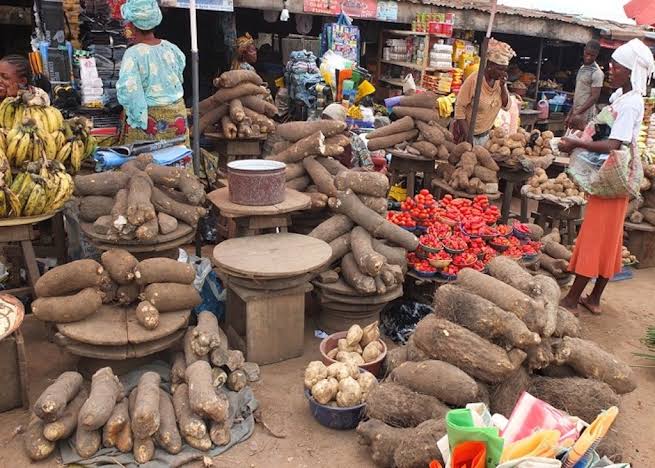Nigeria witnessed a decline in month-on-month food inflation during April, marking the second consecutive month of decrease after a continuous uptrend for five months since October 2023.
The monthly food inflation for April decreased to 2.50%, down from March 2024’s 3.62%, coinciding with a year-on-year food inflation of 40.01%. The gradual rise in monthly food inflation from 1.91% in October 2023 to 3.79% in February was followed by this recent decline over the past two months.
However, headline food inflation surged to 40.53%, indicating a slight increase of 0.52% over the month. Nevertheless, year-on-year food inflation experienced its slowest growth since May 2023 when it stood at 0.21%.
Nigeria grapples with a severe cost-of-living crisis, with inflation hitting a 28-year high at 33.69%, and food inflation nearly reaching 34%. Staple food prices, particularly grains, have surged by almost 100% since last year due to disruptions in global supply chains caused by conflicts in the Middle East and Europe.
The withdrawal of Russia from the United Nations Black Sea grain deal in July last year, which facilitated the free passage of grains to Sub-Saharan African countries like Nigeria, exacerbated the situation. Additionally, disruptions in cargo traffic around the Black Sea by Houthi rebels further pushed up food prices.
The removal of fuel subsidies by President Tinubu earlier in his administration significantly increased transportation costs nationwide, further fueling the rise in food prices.
Moreover, the depreciation of the naira following the unification of the foreign exchange market in June contributed to soaring inflation levels as food imports became pricier. Since the unification of the forex market in 2023, the naira has depreciated by over 100% on the official market.
The World Bank and other development institutions have forecasted heightened levels of hunger and food insecurity due to insecurity and climate change. The World Bank’s food security report for 2024 predicts severe food inflation in seven states in Nigeria, primarily due to insecurity.
Furthermore, reports from Cadre Harmonise suggest that over 5 million Nigerians are at risk of food insecurity between June and August 2024, exacerbated by the removal of fuel subsidies, which has inflated agricultural input and transportation costs.
Similarly, the International Rescue Committee (IRC) report indicates that around 16% of Nigerians will face severe food insecurity during the lean season between June and August 2024.
This figure is higher compared to the 2023 report, signaling an escalating trend in hunger and deteriorating living conditions across Nigeria and the broader West and Central Africa regions.



